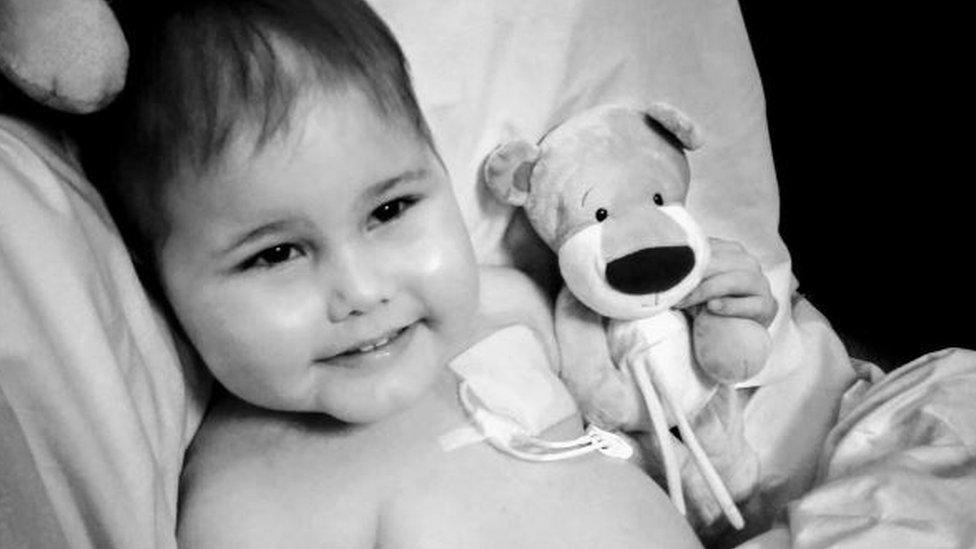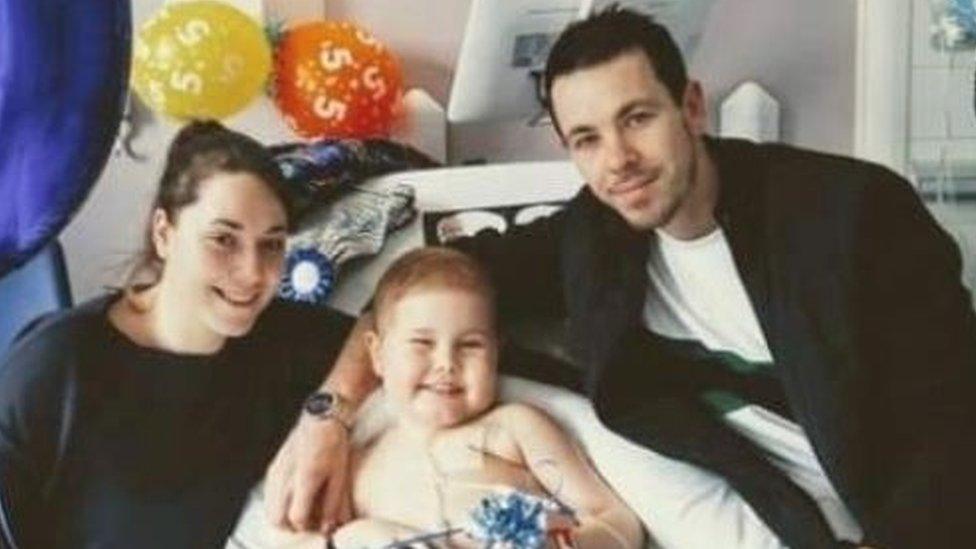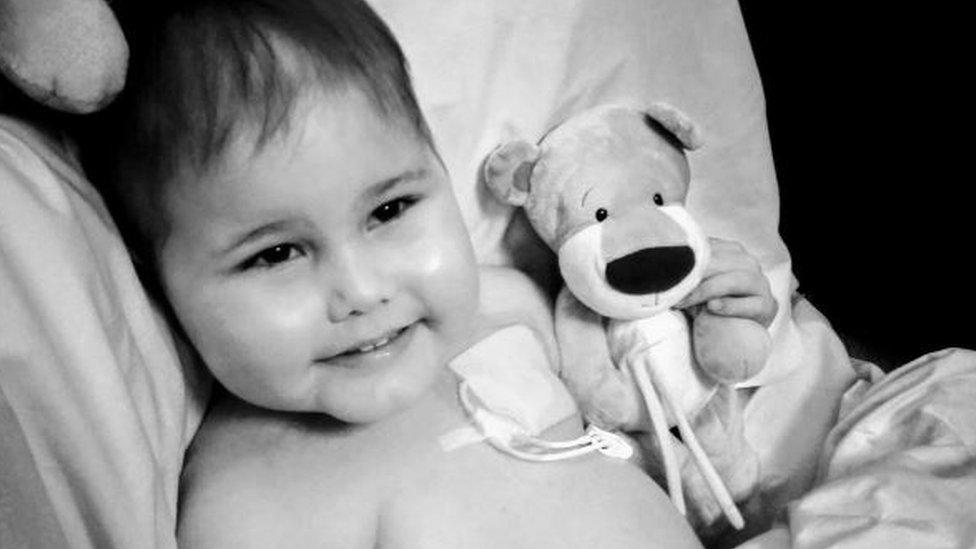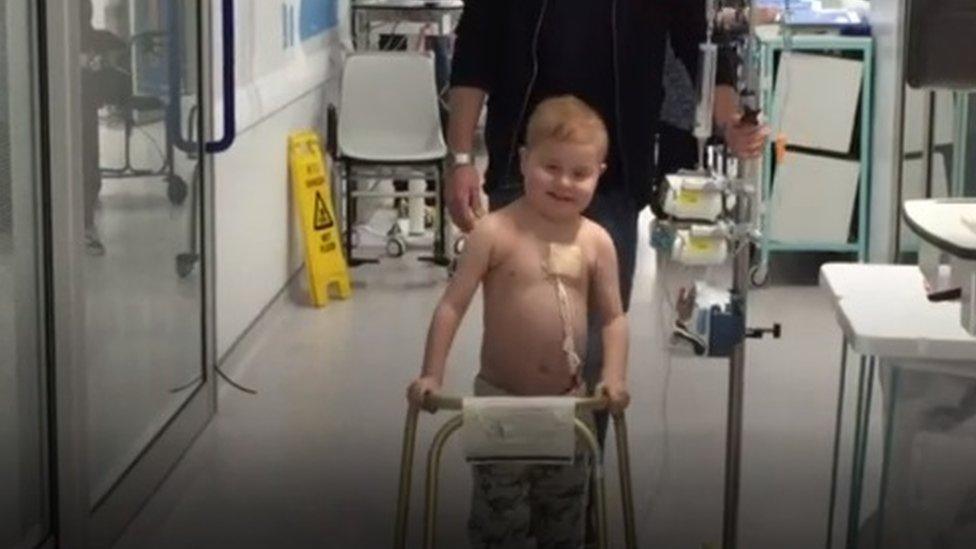Oscar Saxelby-Lee: Cancer returns after stem cell transplant
- Published

Oscar has been treated at Birmingham Children's Hospital
The family of a five-year-old boy with leukaemia has said his cancer has returned, after he underwent a stem cell transplant.
Oscar Saxelby-Lee, from Worcester, had a transplant in May but tests have shown cancer present in his cells.
His family aims to raise £500,000 for further treatment, which they said was not available to him on the NHS.
His mother Olivia said without it they did not know if he will see his sixth birthday in February.
For the last nine months, Oscar has been treated at Birmingham Children's Hospital for acute lymphoblastic leukaemia.

Olivia Saxelby said the family are "really struggling" after the latest news
His family launched a plea for potential donors to join the stem cell register after being told his chances of survival would "severely diminish" without a transplant.
A match was found but three months after his transplant tests have found cancer in his cells, his mother said.
Ms Saxelby said the nature of his condition meant the cancer would "rapidly increase".
She said he now has two options, a second stem cell transplant, which she said is only funded through the NHS if a patient relapses after 12 months.
Otherwise, Oscar could take part in a trial of CAR-T therapy in Singapore, the same treatment which Zac Oliver, from Shropshire, underwent for his leukaemia, another procedure which Ms Saxelby said is not available to him on the NHS.
"Without this we don't even know if he will see his sixth birthday now which is really hard but we can't give up on him, not while he has got so much strength," Ms Saxelby said.
So far more than £38,000 has been raised through an online donation page.
A spokesperson for the NHS said: "The NHS provides CAR-T for certain blood cancers within clinical guidelines set by NICE and where other treatment options have been unsuccessful.
"Patients can receive second bone marrow transplants when it is clinically appropriate." , external

Follow BBC West Midlands on Facebook, external, on Twitter, external, and sign up for local news updates direct to your phone, external.
- Published24 June 2019

- Published29 March 2019

- Published22 March 2019

- Published14 March 2019

- Published2 March 2019
